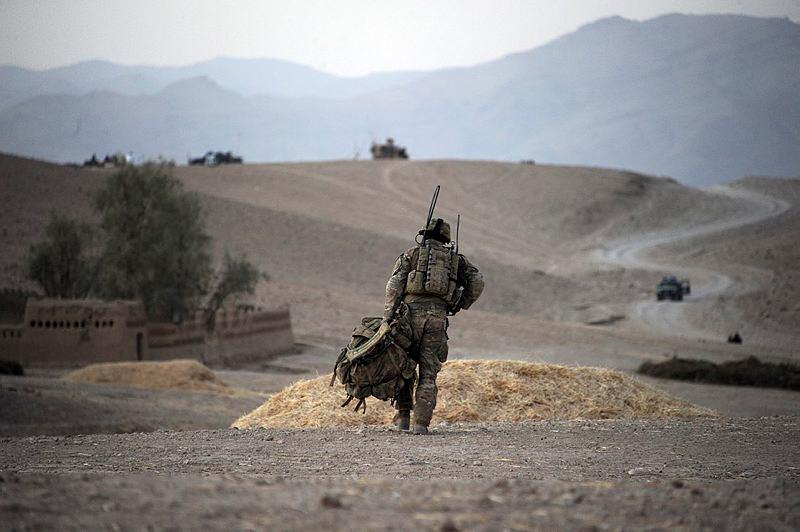The rumour doing the rounds last year was that the Prime Minister had contemplated a unilateral deployment of a battalion of Australian soldiers to Ukraine to secure the crash site of Malaysian Airlines flight MH17, so investigators could do their work. There were similar reports about consideration being given to sending an army brigade to Iraq to tackle ISIS.
Truth and rumours aside, as well as their practical realities, the concept of unilateral deployments by Australian naval, ground or air forces is a challenging one. Put simply, Australian strategic thought and practice has only rarely countenanced action outside an alliance of some description. Post-WWII planning for the defence of the area which can loosely be described as the Australian Station, and which led to the Radford-Collins Agreement, had some of the characteristics of unilateral planning. However, it was national planning in one theatre as part of a global alliance.
Some of the plans for evacuation of Australians from other countries in the event of civil disorder have unilateral elements to them, but they are very limited in their scope. The operations to stabilise East Timor and the Solomon Islands are probably the closest Australia has ever come to unilateral action; the political strategic initiative, planning and execution were in large part led by Australia, but are more accurately characterised as an Australian lead in a coalition context. Australia has previously included self-reliance as one aspect of its defence policy, but that was conceived mainly in terms of procurement and supply.
In what circumstances would Australia take unilateral military action? What action or threat against our national interest would be so direct, the consequences of which would be sufficiently grave and immediate, that the Australian Government would order military action as part of its response? Such an order would be the most challenging the Australian Defence Force would ever have to carry out. After several decades of talking about joint operations and carrying out operations as components of allied forces, would the ADF be able to act coherently and unilaterally? And do our strategic practitioners—military, diplomatic and political—have sufficient understanding of each other to be able to formulate and enact unilateral strategic policy?
Australia remains a lucky country: we have skilled diplomats who work to ensure our interests are looked after without the explicit threat or use of force; and most, but not all, of our interests are either coincident with those of other nations or are a long way from any nation with the capability to attack them. While the likelihood of Australia needing to act unilaterally isn’t great, we are in a period of flux in the international order and the past experience of being relatively far from most military action and having the comfort of strong and powerful alliances shouldn’t be taken for granted. Although these aren’t questions that have been frequently or extensively discussed, they are the most important decisions an Australian Government could ever make. In that sense, there’s merit in considering them while there’s leisure to do so.
There are obvious situations where Australia would take unilateral action, such as if another nation attempted to invade, and while it can never be completely discounted it remains a less likely scenario. But what about others? The possibilities below are not fully formed—indeed they beg many questions—and are intended to prompt thought and discussion on the original question: in what circumstances would Australia take unilateral military action?
- What if, during a period of great tension between the US and another nation, and where Australia was not otherwise involved, a bulk carrier was sunk close to an Australian port? How would Australia respond to such a proxy attack?
- What if a nation chose to close, or even to openly contemplate closing, an archipelagic sea lane or international strait? Or to impose an environmental levy on the passage of vessels over a certain tonnage? What would be the impact on insurance rates for vessels travelling to and from Australia and would that be acceptable to Australia?
- What if a nation cut one or more of the submarine communications cables which connect Australia to the world? Would we act to defend them in future?
- What if another nation sought to damage an offshore oil and gas platform or threaten to lay sea mines in its vicinity?
- What if a country sought to detain a Qantas or Virgin aircraft in a future disagreement with Australia?
Many what ifs, but I think we need to move beyond the entertainment of rumour and try to define our core national interests and, in particular, those which are unique to Australia, because those are guides to the issues over which we might be forced or chose to take unilateral military action. Nor should such contemplation be seen as a rejection of alliances and multilateral cooperation; if anything, an ADF capable of unilateral action in defence would make Australia a more valuable alliance partner with more to contribute and less to take.
